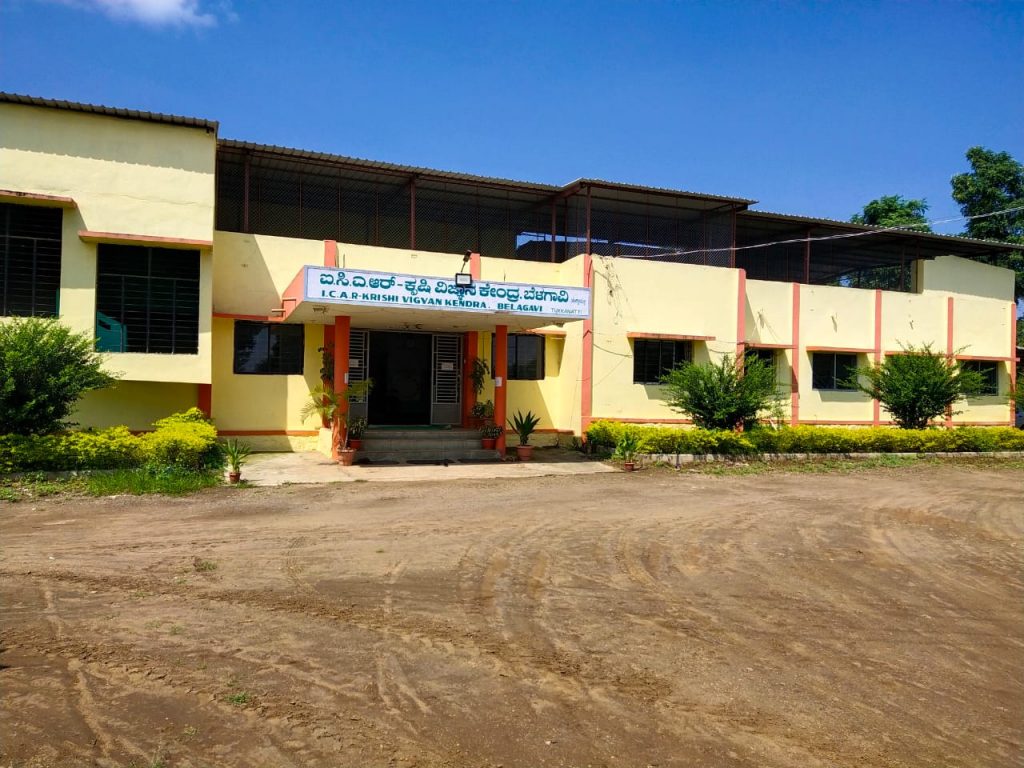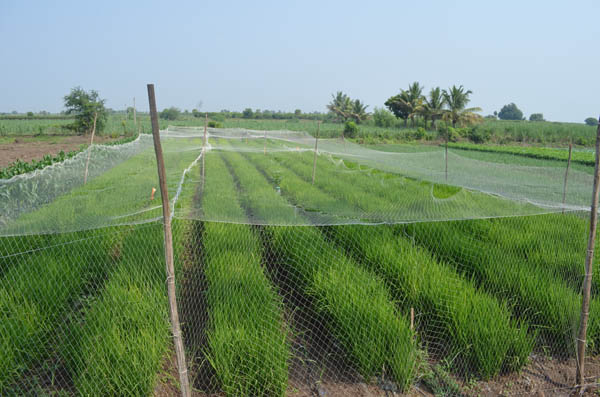In a country like India, where agriculture is the backbone of the economy, it is essential to empower the rural population and equip them with the necessary knowledge and skills to enhance agricultural production. One such significant initiative in this regard is the establishment of Krishi Vigyan Kendras (KVKs) or Agricultural Science Centers.
KVKs serve as a beacon of light for rural people, acting as a one-stop solution for all their agricultural needs. These centers were set up by the Indian Council of Agricultural Research (ICAR) with the aim of bridging the gap between research and extension activities in agriculture. With over 700 KVKs spread across the country, their impact on rural empowerment has been tremendous.
The primary objective of KVKs is to impart agricultural education, provide training, and transfer the latest agricultural technologies to the farmers, ensuring sustainable agriculture. These centers act as a medium for the dissemination of agricultural information and practical knowledge to farmers, ensuring the implementation of best practices in the field.
One of the pivotal roles played by KVKs is the assessment and refinement of agricultural technologies in local conditions. By conducting on-farm testing of technology and gathering feedback from farmers, KVKs help in adapting and refining scientific methods to suit the local context. In turn, this empowers farmers to make informed decisions and adopt practices that yield better results.

KVKs actively engage in capacity building and training programs for farmers, farmwomen, rural youth, and other stakeholders involved in agriculture. These training programs cover a wide range of topics, including crop production, horticulture, animal husbandry, post-harvest management, organic farming, and agri-entrepreneurship. The KVKs employ various educational methods like demonstrations, workshops, field visits, and practical hand-on sessions to ensure effective learning and knowledge retention.
Apart from training and education, KVKs also act as a hub for producing quality planting material. They develop and distribute disease-resistant and high-yielding crop varieties, ensuring that farmers have access to good quality seeds. KVKs also provide technical guidance on soil health management, pest control, and water conservation methods. By addressing these fundamental issues, KVKs help farmers maximize their productivity while minimizing inputs and costs.
Another significant contribution of KVKs is their role in women empowerment. These centers conduct skill development programs and training sessions exclusively for women farmers, enabling them to become self-reliant and take independent decisions in agricultural activities. By training women in various income-generating activities like mushroom cultivation, beekeeping, and food processing, KVKs contribute to the overall socio-economic development of rural communities.
Furthermore, KVKs actively collaborate with other research and extension agencies, NGOs, and government organizations to facilitate knowledge sharing and collaborative research. These partnerships ensure that the latest research findings and advancements are made accessible to farmers in a practical and understandable manner.
You can read our another post on World Art Day

Write A FAQ For Krishi Vigyan Kendra : The Light House forRural People
What is the role of Krishi Vigyan Kendra (KVK) in rural areas?
Krishi Vigyan Kendra plays a crucial role in providing agricultural and technological assistance to rural people. It serves as a beacon of knowledge and enlightenment, helping farmers and rural communities enhance their agricultural practices, adopt modern technologies, and improve their livelihoods.
What kind of services does Krishi Vigyan Kendra provide?
KVK offers a wide range of services to rural people, including training programs on improved agricultural practices, resource management, and crop diversification. It also conducts on-farm trials to showcase latest technologies and conducts demonstrations to promote new farming techniques. Additionally, KVK provides expert guidance on pest and disease management, soil health management, and organic farming.
How can farmers benefit from Krishi Vigyan Kendra?
Farmers can benefit from KVK in several ways. They can attend various training programs organized by KVK to enhance their skills and knowledge in modern agricultural practices. KVK also provides handholding support to farmers by guiding them on crop selection, agronomic practices, market linkage, and post-harvest management. Farmers can also access KVK’s demonstration farms to learn and adopt new technologies.
Can individuals from non-agricultural backgrounds also benefit from Krishi Vigyan Kendra?
Yes, Krishi Vigyan Kendra is not limited to farmers alone. Individuals from non-agricultural backgrounds can also benefit from KVK’s services. KVK conducts training programs and workshops for rural entrepreneurs, agripreneurs, and rural youth to enable them to start their own agricultural businesses or gain employment in the agricultural sector. KVK’s expertise also extends to agribusiness management, dairy farming, poultry farming, and allied agricultural activities.
How can one avail the services of Krishi Vigyan Kendra?
To avail the services of Krishi Vigyan Kendra, individuals can reach out to their nearest KVK center. KVK centers are located in various rural areas across the country and are easily accessible to the rural population. Many KVKs have their own websites or social media platforms where individuals can find contact information and details about the services offered. Individuals can also approach local agricultural extension offices to seek guidance on contacting their nearest KVK center.
Conclusion
In conclusion, Krishi Vigyan Kendras have transformed the lives of rural people across India. By providing them with scientific knowledge, skills, and technological advancements, KVKs have elevated the agricultural sector and improved the livelihoods of farmers. These agricultural science centers truly act as lighthouses, guiding rural people in their journey towards sustainable agriculture and a brighter future.
